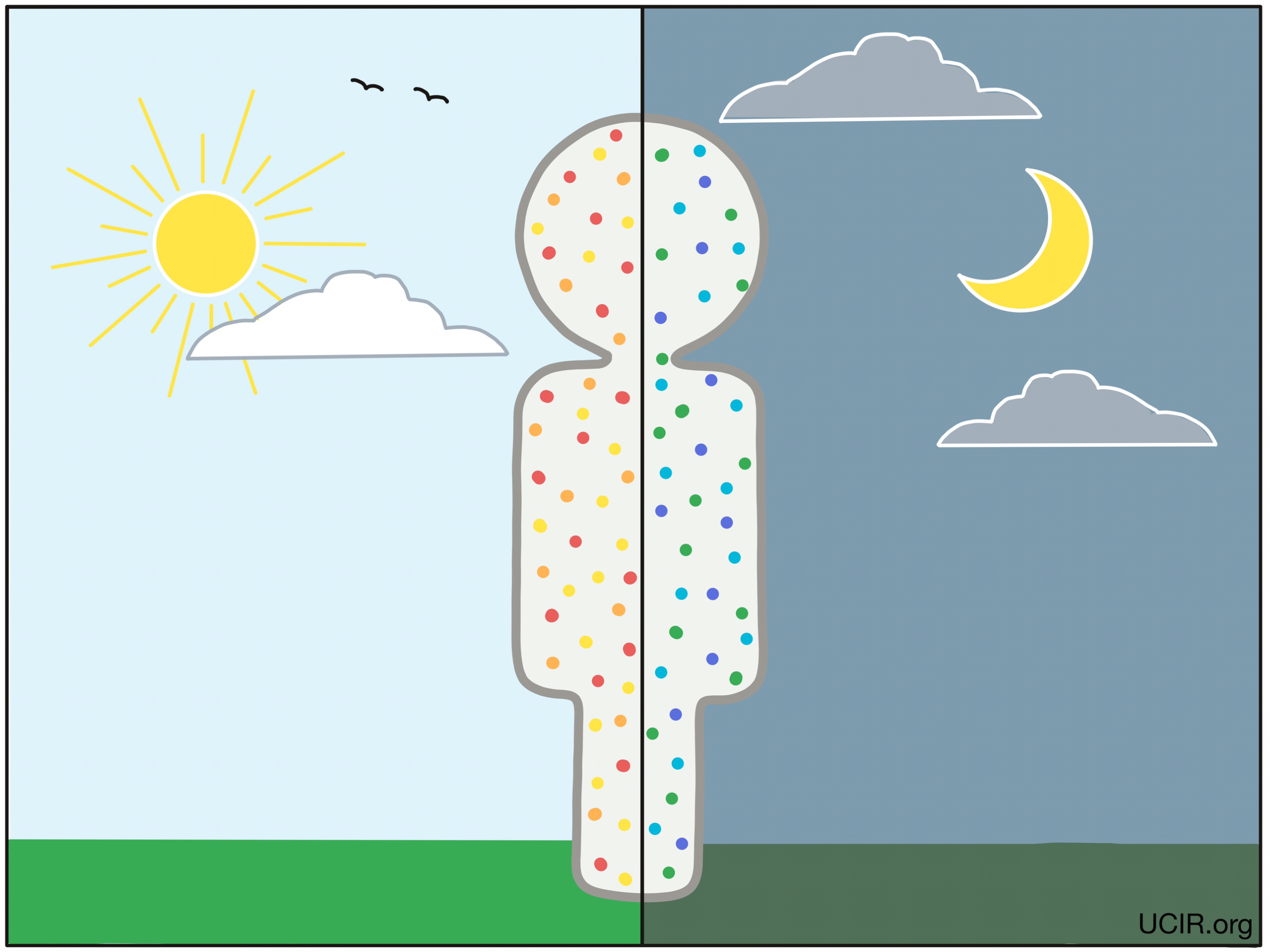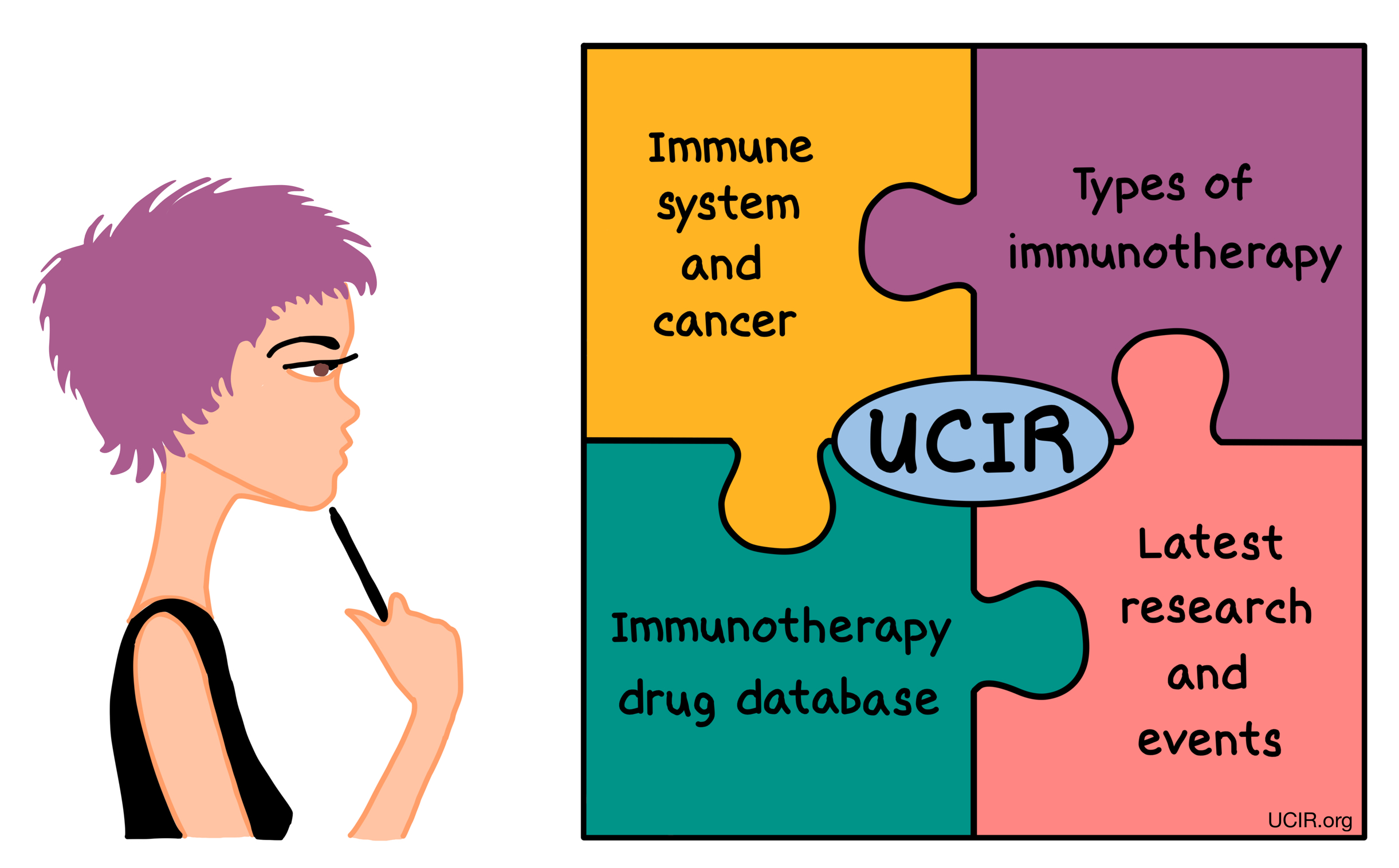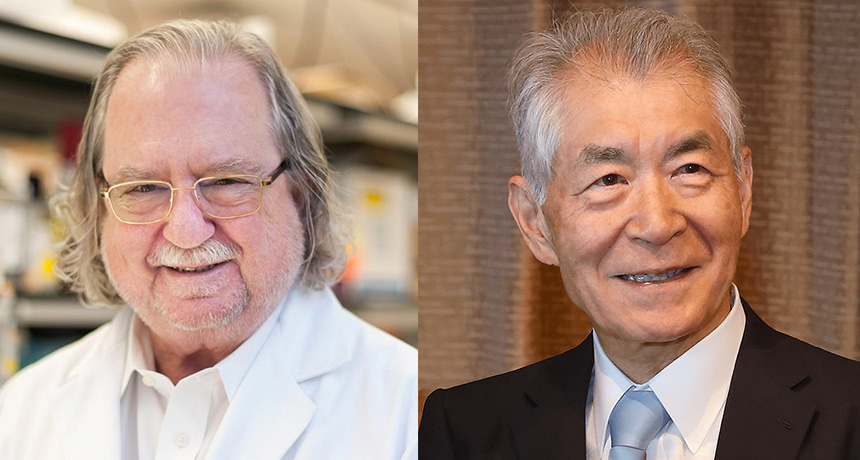Morning, noon, or night? How circadian rhythms affect cancer and cancer immunotherapy
2023-07-25

We all know the importance of a good night’s sleep, but sleep and wake cycles are not the body’s only functions under the control of night and day. Our bodies follow numerous patterns based on periods of light and dark or other repeating environmental inputs. Called circadian rhythms, these daily patterns guide physical, mental, and behavioral changes throughout the day and night. The amount of light that comes in through our eyes helps to set this “biological clock” in our brains, which controls the release of hormones that govern countless functions throughout the body. Circadian rhythms affect everything from sleeping and waking, to eating and digestion, to the immune system and cancer. Given the important links between the immune system and cancer, and especially given the growing importance of cancer immunotherapy, several recent studies have begun to investigate how time of day influences these complex systems.
In recent years, researchers have found that circadian rhythms play a role in how our bodies control the development of cancer. For example, disrupting the circadian rhythm through behaviors like traveling across time zones or working overnight shifts, may increase a person’s risk of developing cancer. In mice, where researchers can experimentally change the sleep/wake cycle, disrupting natural circadian rhythms has been shown to accelerate the initiation of tumors and the development of metastases – tumors that have spread to other parts of the body. While the exact reasons for this are not fully understood, it is possible that when different activities occur at the “wrong” time of day, immune cells and molecules that impact them may vary in the blood or in different bodily tissues, which could either directly empower cancer cells to be more aggressive or could dampen the immune system, allowing cancer to grow and spread while the body’s defenses are down.
To better understand how cancer responds to changes in the body throughout the day, researchers looked at the levels of cancer cells traveling in the blood. Interestingly, different cancer types showed clear circadian patterns. However, a number of different patterns have been identified for different cancer types, and the different times when a particular cancer type is most likely to be traveling in the blood may help to explain why some certain cancers are more likely to spread. For example, if a cancer is more likely to travel when immune defenses are down, it might be more likely to spread than a cancer that tends to travel when the immune system is armed and ready.
Understanding that the time of day affects how well cancers are controlled naturally, researchers have also investigated whether cancer treatments are affected by the time of day in a medical setting. For chemotherapy, studies have shown that delivering treatments at certain times of day can help reduce adverse events (negative reactions to treatment) and allow patients to better tolerate treatments. Time of day for chemotherapy administration has also been shown to affect the outcomes for the patients, which can help to guide how hospitals and treatment centers schedule patient appointments.
Immunotherapy treatments for cancer have also been shown to be more effective depending on the time of day at which they are given. In one clinical study, in which about 300 patients with advanced melanoma were treated with checkpoint blockade therapies, including ipilimumab, nivolumab, pembrolizumab, or combinations of these drugs, patients who received 20% or more of their doses in the late afternoon or early evenings experienced worse outcomes compared to those who who had most or all of their doses in the morning or early afternoon. Similar results have been observed with vaccinations for tuberculosis, hepatitis A, and influenza, where induced immune responses were found to be weaker among patients who received their vaccine(s) in the late afternoon or early evening. These findings are in line with an increasing body of evidence that immune responses are less robust when initially stimulated in the evening, and could guide scheduling of immune-related therapies to support better outcomes.
Digging deeper into the immune system’s circadian rhythms, researchers have found that two cell types important to immune responses to cancer, T cells and dendritic cells, are notably influenced by the time of day. T cells are guided both by internal factors, like biological clock-related genes, and by external factors, like molecules in their environment that vary throughout the day. These factors influence not only the behavior of the T cells, but also their numbers in the blood at different times throughout the day. Dendritic cells also follow circadian rhythms, which affects their ability to initiate antitumor immunity. In mice, it has been shown that delivering immunotherapy at times that capitalize on more efficient dendritic cell and/or T cell activity improved responses to treatment and reduced cancer growth.
Understanding the biological clocks and cellular and molecular changes that govern the immune system and cancer can help researchers to develop more effective strategies to treat cancer. This could involve not only optimizing the timing of biopsies and treatments, but also potentially manipulating the natural circadian rhythm of immune cells to make it work to a patient’s advantage. There is still much more to explore in this field, but recent advances are already guiding clinical decisions for patients, and could lead to better outcomes going forward.
By Lauren Hitchings
References:
Diamantopoulou Z, et al. A new time dimension in the fight against metastasis. Trends in Cell Biology (2023)
Yeung C, et al. Association of circadian timing of initial infusions of immune checkpoint inhibitors with survival in advanced melanoma. Immunotherapy (2023)
Wang C, et al. Dendritic cells direct circadian anti-tumour immune responses. Nature (2023)
Ince LM, Barnoud C, et al. Influence of circadian clocks on adaptive immunity and vaccination responses. Nature Communications (2023)
Santoni M, Molina-Cerrillo J, Massari F, et al. Re: Effect of Immunotherapy Time-of-day Infusion on Overall Survival Among Patients with Advanced Melanoma in the USA (MEMOIR): A Propensity Score-matched Analysis of a Single-centre, Longitudinal Study. European Urology (2022)
Cermakian N, Labrecque N. Regulation of Cytotoxic CD8+ T Cells by the Circadian Clock. The Journal of Immunology (2023)
Cervantes-Silva MP, Carroll RG, et al. The circadian clock influences T cell responses to vaccination by regulating dendritic cell antigen processing. Nat Communications (2022)
Wang C, Lutes LK, et al. The circadian immune system. Science Immunology (2022)




